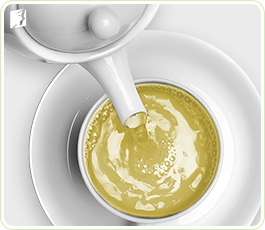Menopause can be a difficult transitional period. Many women experience insomnia, interrupted sleep, and night sweats during menopause. This can cause fatigue, depression, irritability, and many other problems during the day, as good sleep is important to overall quality of life.
There are a number of different things that you can do to help return your body to its normal cycle and get a good night's sleep.
What Causes Sleep Problems during Menopause?
The transition into menopause can be a confusing time for your body, with hormones fluctuating regularly and upsetting your natural equilibrium. This can manifest itself in a variety of ways, many of which can affect sleep.
Types of Menopause Sleep Disorders
There are several different types of sleep problems that can occur during menopause. Understanding which problem you have can help you find the best solution.
Night sweats. Night sweats occur when the body becomes confused about its temperature due to lower hormone levels. It tries to compensate by heating the body up, and then cool it down by sweating. Night sweats can interrupt sleep, and repeatedly being awoken from a deep sleep can make your nights less restful and the following morning harder.
Snoring. It increases significantly among menopausal and postmenopausal women. If you are also experiencing pauses or gaps in breath, it could be a sign of sleep apnea, which is a serious condition. Talk to your doctor if you suspect that.
Insomnia. You just can't fall asleep. Maybe your body is tired, maybe it isn't, but when you lie down in your bed, you have significant trouble sleeping.
Can Herbal Teas Really Help?

Herbal teas to aid sleeping have been a staple of many cultures for thousands of years. While most teas have not been thoroughly scientifically investigated, or the evidence is inconclusive, many of these can be relaxing for other reasons as well. Taking a moment before bed to sit, relax, and drink something warm can calm your body and ready it for sleep as well.
Here are a few herbal teas that are known for their ability to aid sleeping:
- Chamomile. A traditional insomnia treatment.
- Valerian. Often traditionally used as a sedative.
- Kava. Please note, this herb should never be taken in caplet or supplement form, as it has been linked to liver damage in high concentrations.
- Lemon balm. It is well-known brew to relax the body.There are also a number of mixed herbal teas that combine a number of sedative herbs together that you may want to try.
What Else Can I Do?
There several other methods that you can try to deal with troubled sleep.
Avoid triggers. There are many things that can keep you awake. Don't drink caffeine or alcohol, smoke, or have large meals or spicy foods directly before bed.
Relaxation techniques. Go for a massage, do yoga, or meditate to try to calm your mind.
Melatonin. A supplement usually used by travelers trying to get over jet lag, it has also been effective for insomnia.
Sleeping arrangements. Put a fan in your bedroom to increase circulation. Also, wear lightweight, cotton pajamas instead of synthetics.
More Information
If you are still troubled by poor sleep, hormone replacement therapy (HRT) may be an option - although it's usually reserved for severe cases. Please talk to your doctor before pursuing this course of treatment to see if it's right for you.For more information on sleep problems during menopause, click on the links below.
Sources
- National Center for Complementary and Integrative Health. (2014). Sleep Disorders and Complementary Health Approaches: What You Need To Know. Retrieved July 15, 2015, from https://nccih.nih.gov/health/sleep/ataglance.htm
- National Sleep Foundation. (n.d.). Menopause and Sleep. Retrieved on July 15, 2015 from http://sleepfoundation.org/sleep-topics/menopause-and-sleep/page/0/1
